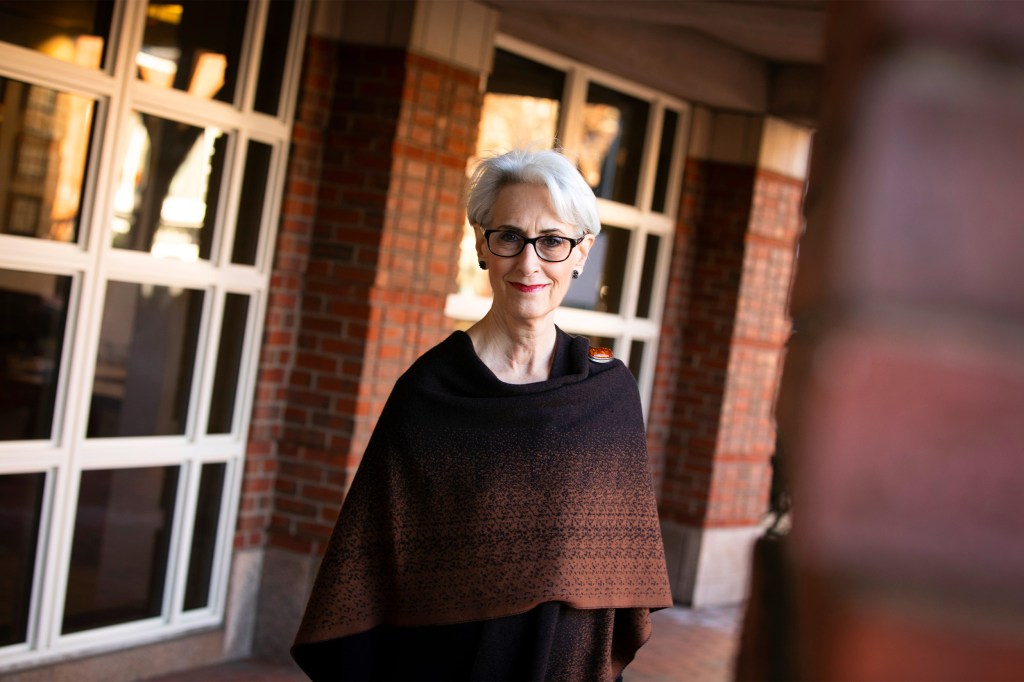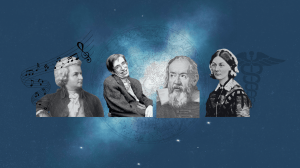Nation & World
-
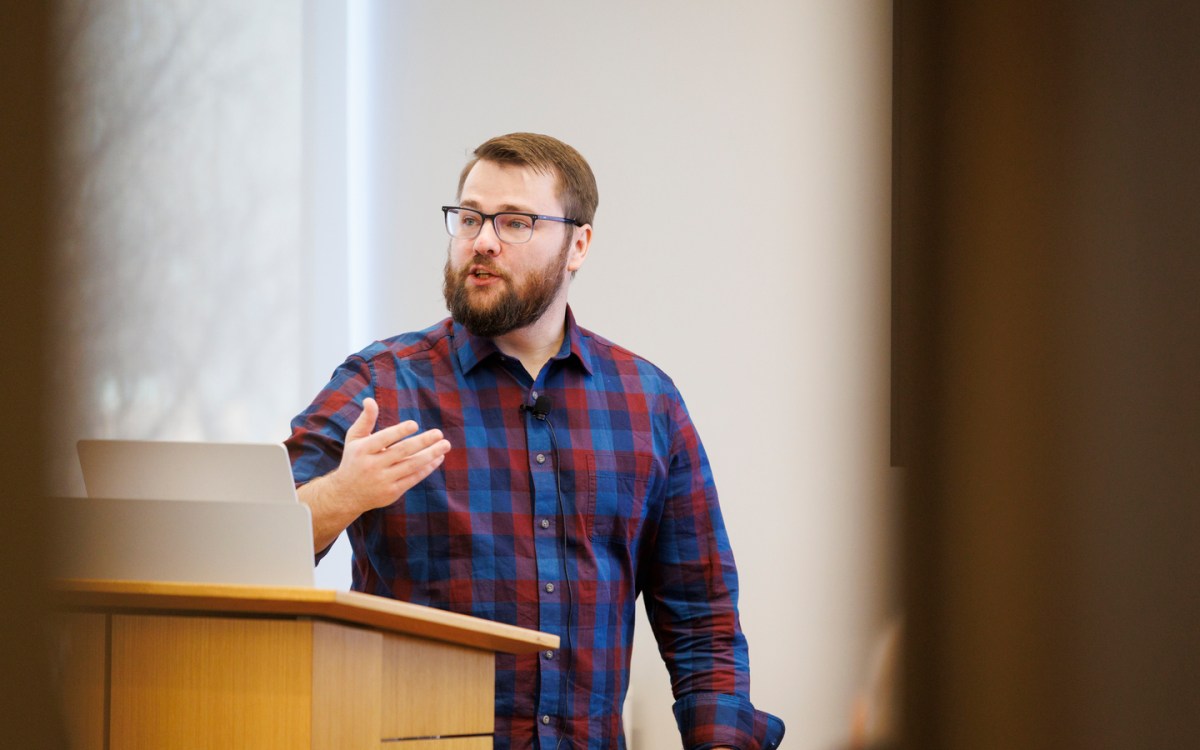
Why are older adults more likely to share misinformation online?
They have greater tendency to seek out, believe material that conforms to pre-existing views, expert says.
-

Hope for imminent Russia-Ukraine peace is out of touch with reality, expert says
Hope for imminent Russia-Ukraine peace is out of touch with reality, expert says
-
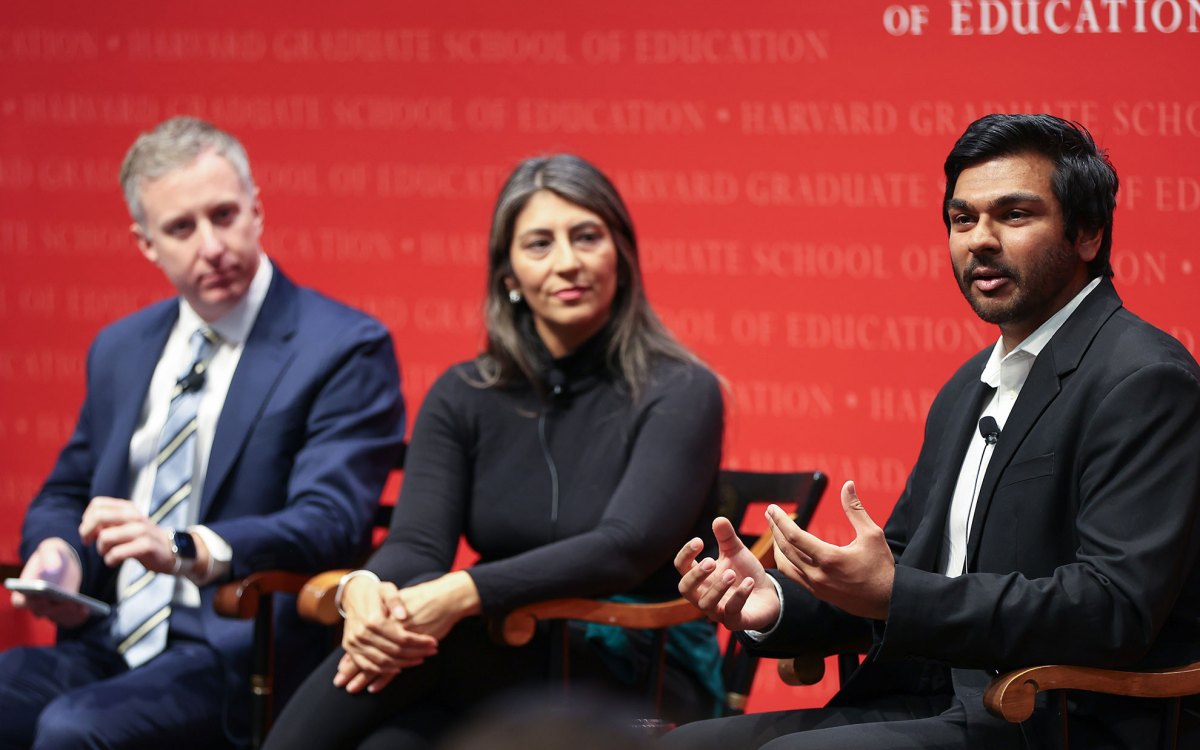
What’s working, not on front lines of AI in classroom
Tech, education experts share new initiatives on learner profiles, making STEM more accessible, ‘microschool’ experiments
-
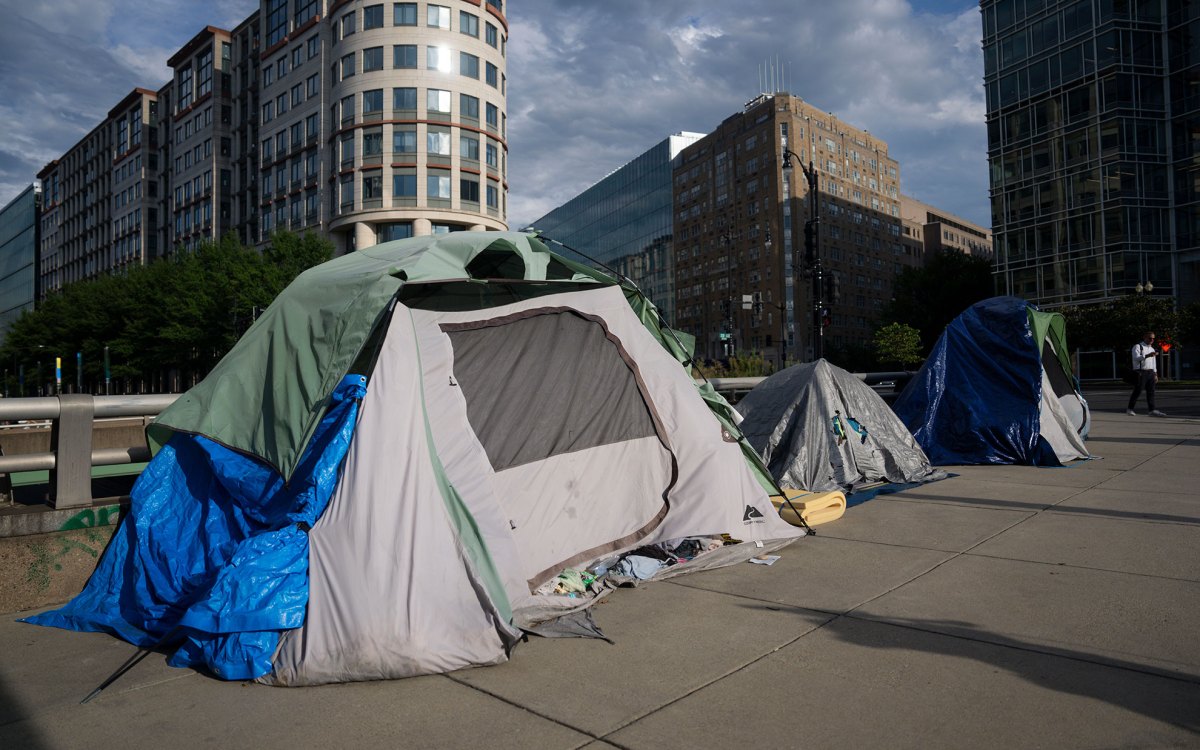
A call for corporate America to step up on homeless crisis
Business School initiative brings together leaders from business, government, academia
-

Think the viral meme of that legislator is funny?
Political philosopher says rampant schadenfreude among electorate poses risk to democracy
-
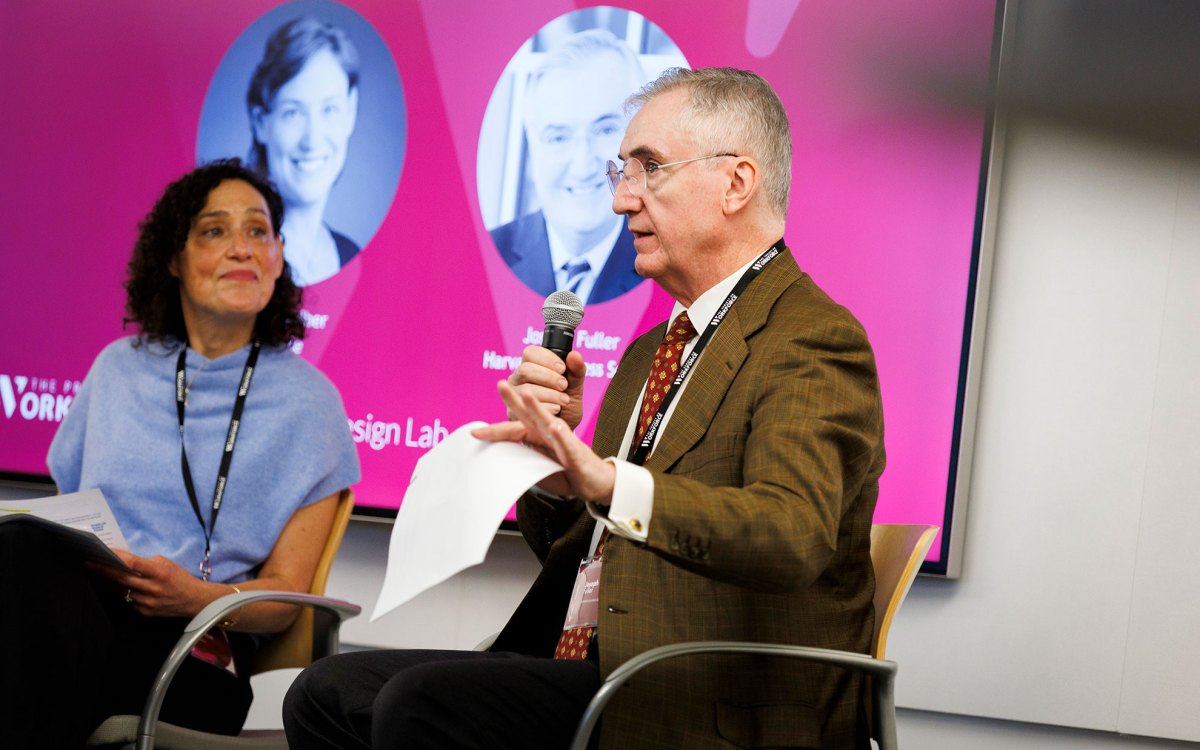
How AI is disrupting classroom, curriculum at community colleges
Conference examines ways to deal with unique vocational, educational challenges
-
Probing the roots and rise of white supremacy
Adam Serwer, a staff writer for The Atlantic and a Shorenstein fellow, discusses the lasting appeal of white supremacist ideology in light of an avowed white supremacist’s attack on two mosques in New Zealand that killed 50 people and injured dozens more.
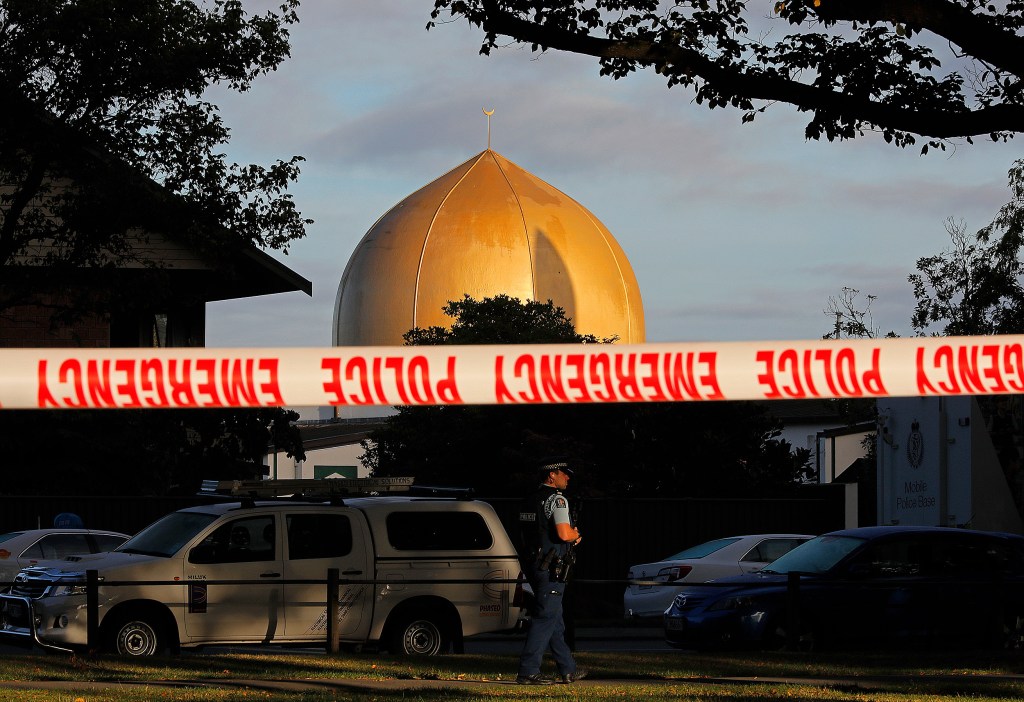
-
Student achievement gap same after nearly 50 years, study says
Disadvantaged students today are doing no better compared to their advantaged peers than they were in 1954, despite countless programs to bridge this gap. The blame, say researchers, lies in a decline in teacher quality.

-
Looking to China for lessons on helping the poor
Harvard scholar Nara Dillon is seeking lessons on poverty reduction from China’s success, part of Harvard’s long-running, broad engagement with the world’s most populous nation that continues over spring break when President Larry Bacow visits.
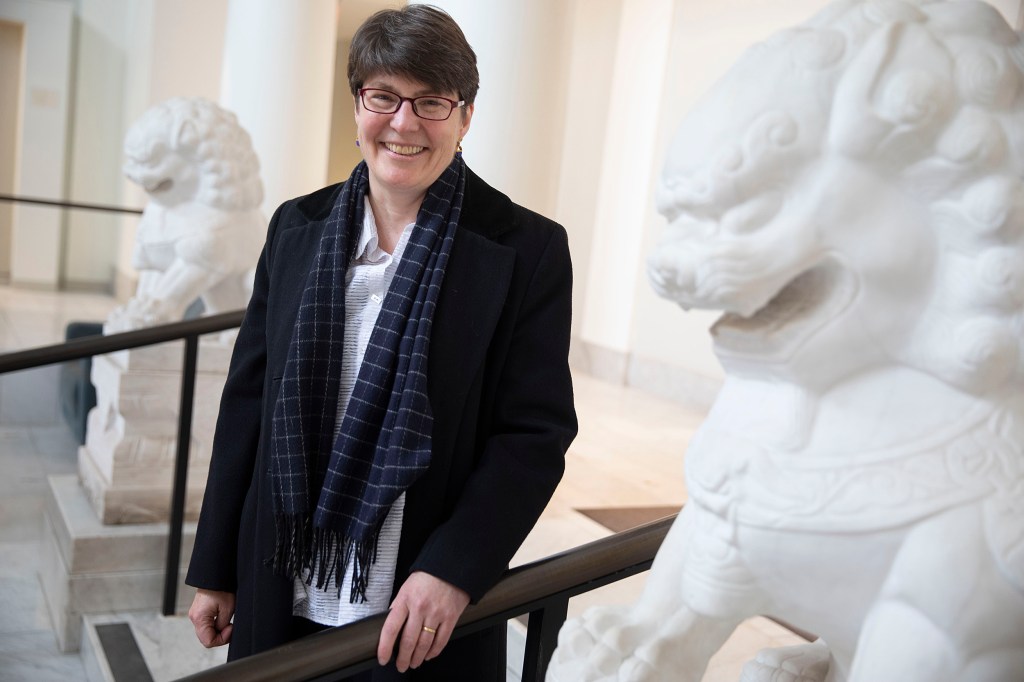
-
Dealing with disaster
As part of the class “GeoSciFi Movies: Real vs. Fiction,” students took part in a role-playing game that had them play the parts of the government and citizens of the island of Montserrat, as well as a group of scientists monitoring the island’s volcano.
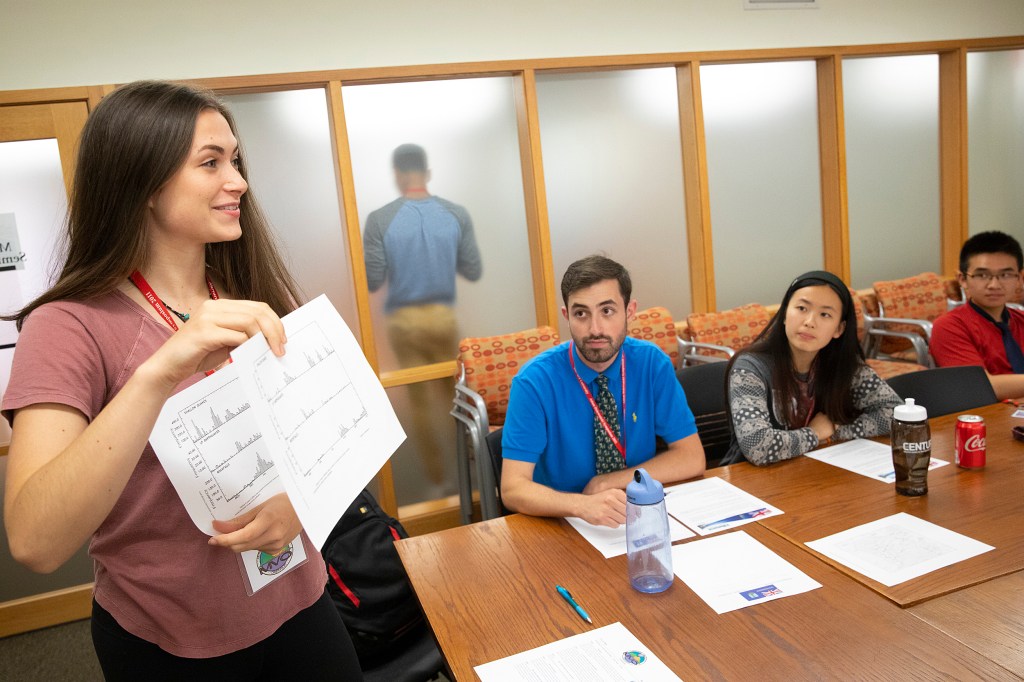
-
‘They’re representing individuals who are in need’
The Gazette follows students working at the Harvard Legal Aid Bureau, a student-run legal services organization that helps students practice law in the real world, as they represent young immigrants and help them start new lives in their new country.
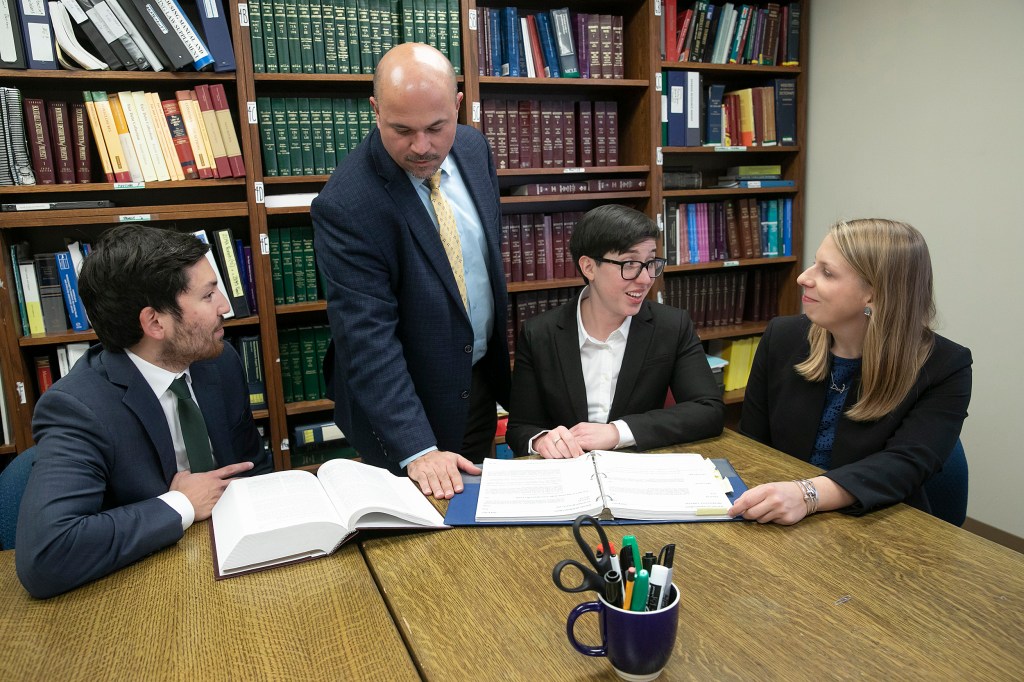
-
Rebooting the land of opportunity
Harvard Professor Raj Chetty says big data suggests some ways to counter the slipping U.S. standard of living.
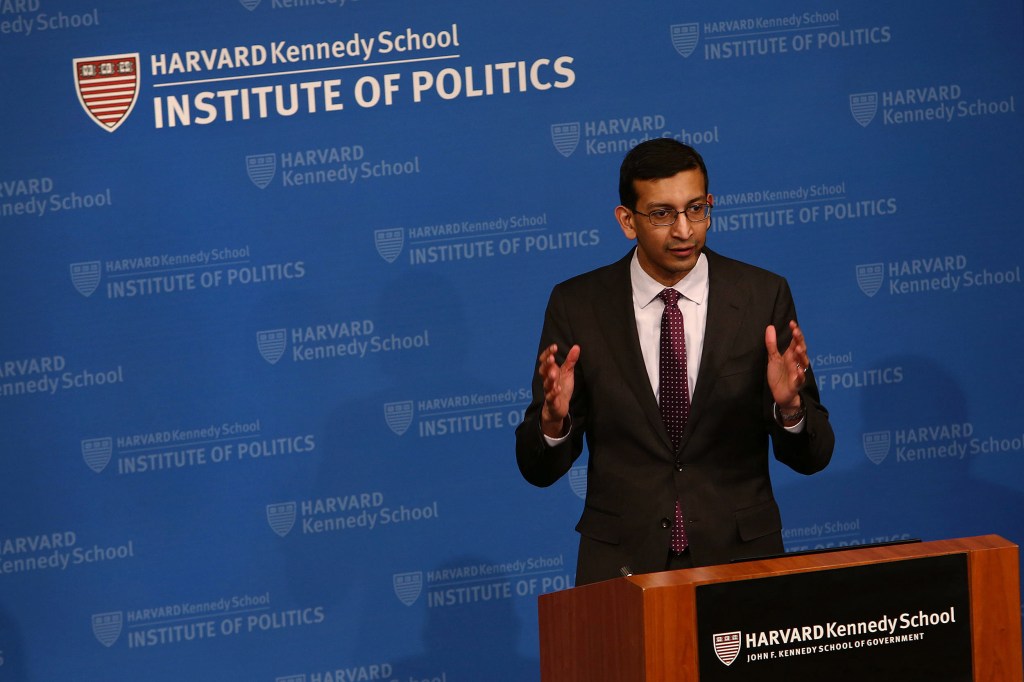
-
A plea to support DACA
Jin Park ’18, a DACA recipient and Rhodes scholar, testified before the House Judiciary Committee Tuesday about the “impossible position” he and others like him are now in if they leave the U.S. to study or work as a result of termination of protections.
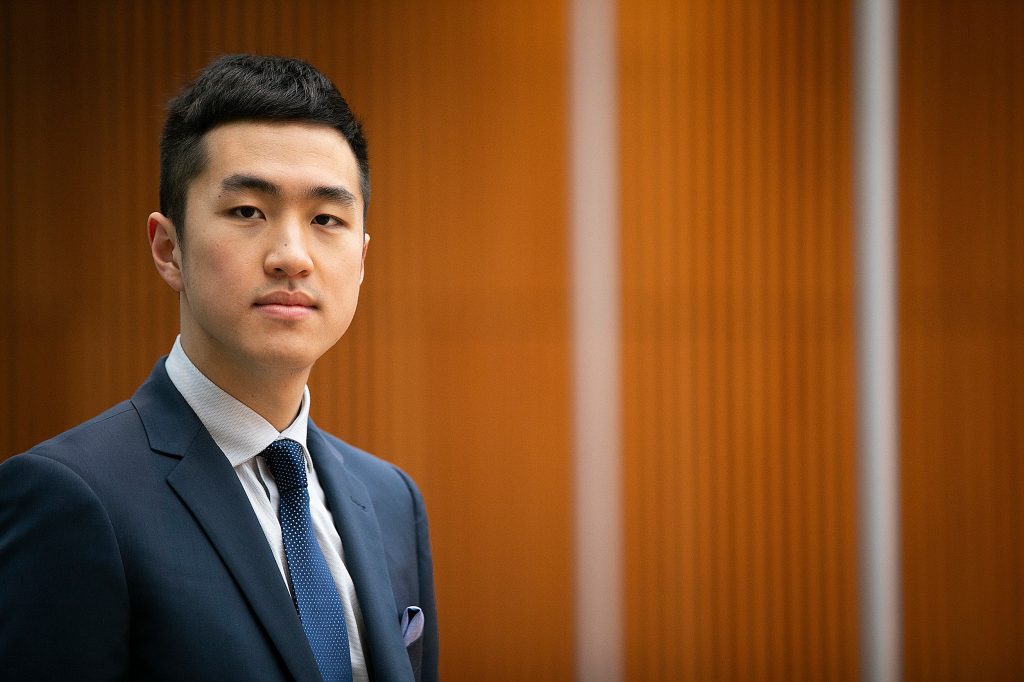
-
‘Failed’ Trump-Kim summit could spark real diplomacy
A seminar at Harvard’s Kennedy School, planned to assess the outcomes of the Trump-Kim summit in Vietnam, instead dissected the meeting’s “failure” and what it means for diplomacy.
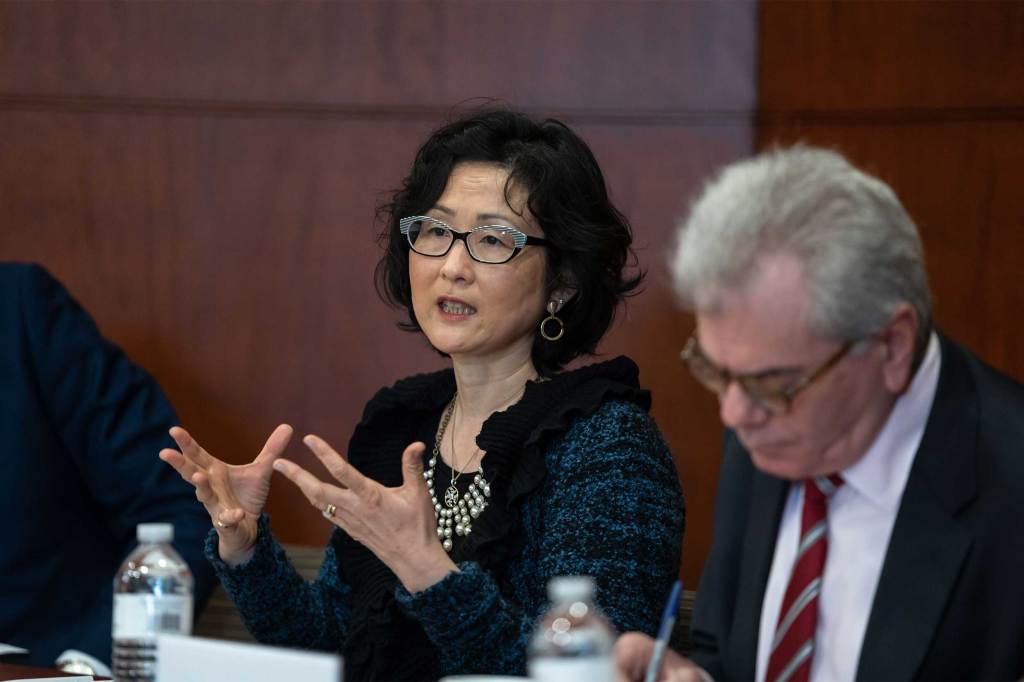
-
Lessons from a gubernatorial loss
Former Tallahassee Mayor Andrew Gillum, who excited Democrats’ hopes with his progressive message in Florida’s gubernatorial race in November, will work with students at the Institute of Politics this semester to expand ideas of how change happens.
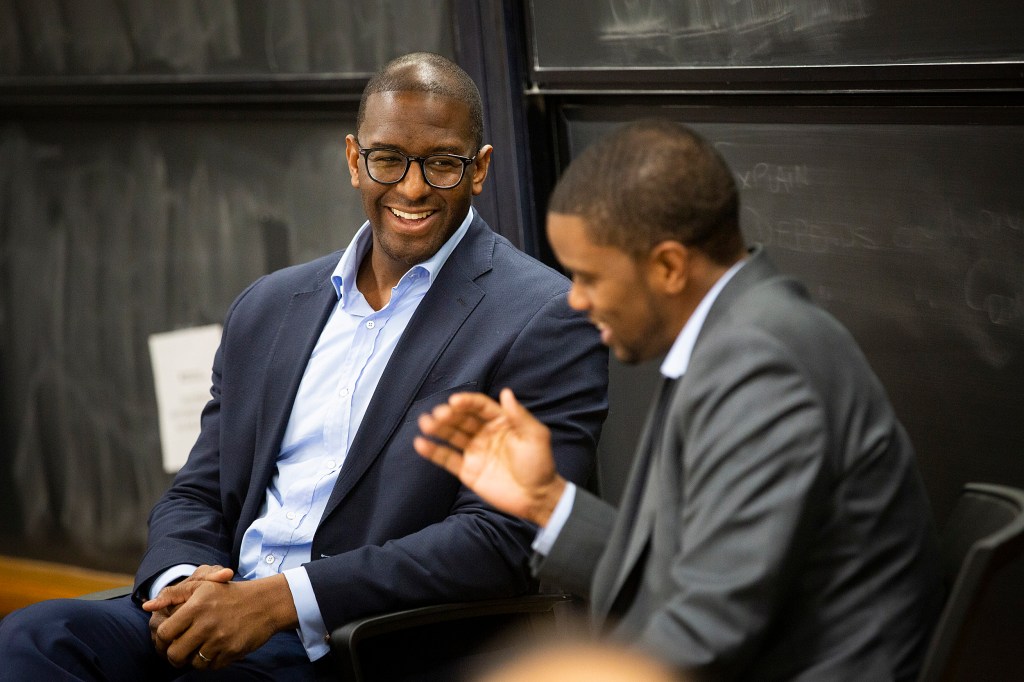
-
Serbian Roma children face discrimination in school
Madga Matache is the head of the Roma Program at the François-Xavier Bagnoud Center for Health and Human Rights at Harvard University (Harvard FXB), where she is shedding light on the lives of Romani children and teens who continue to face racism and discrimination in and out of the classroom.
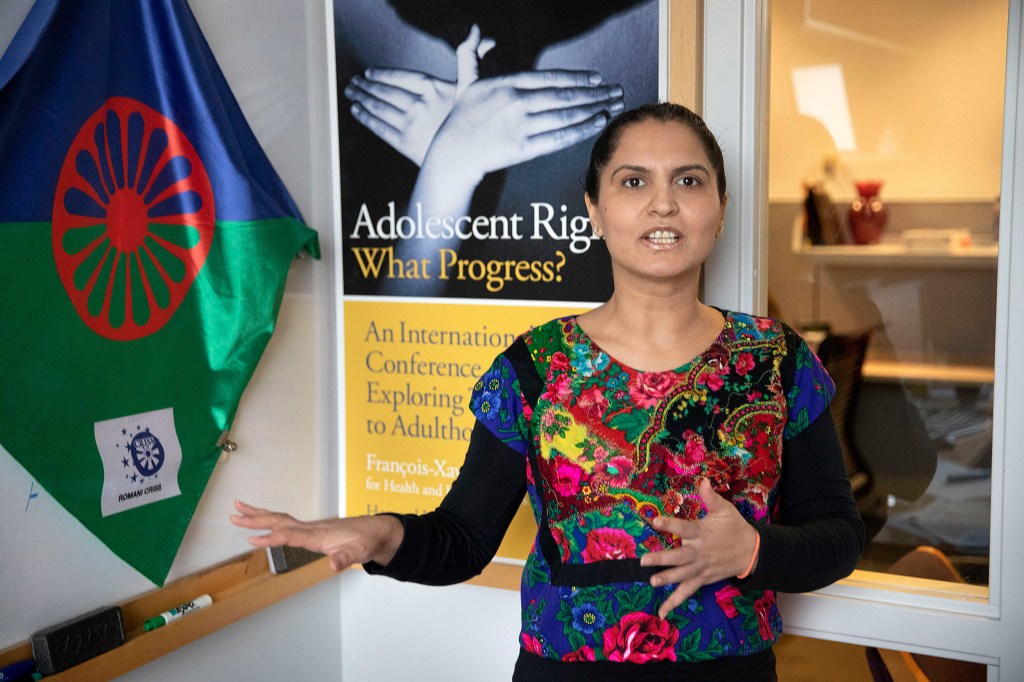
-
It’s spy vs. spy vs. spy
Newly named general editor of a book project documenting espionage and intelligence throughout human history, Harvard Kennedy School senior fellow Calder Walton discusses the context of the FBI’s investigation into President Trump’s connections to Russia and how spies and spying have evolved over centuries.
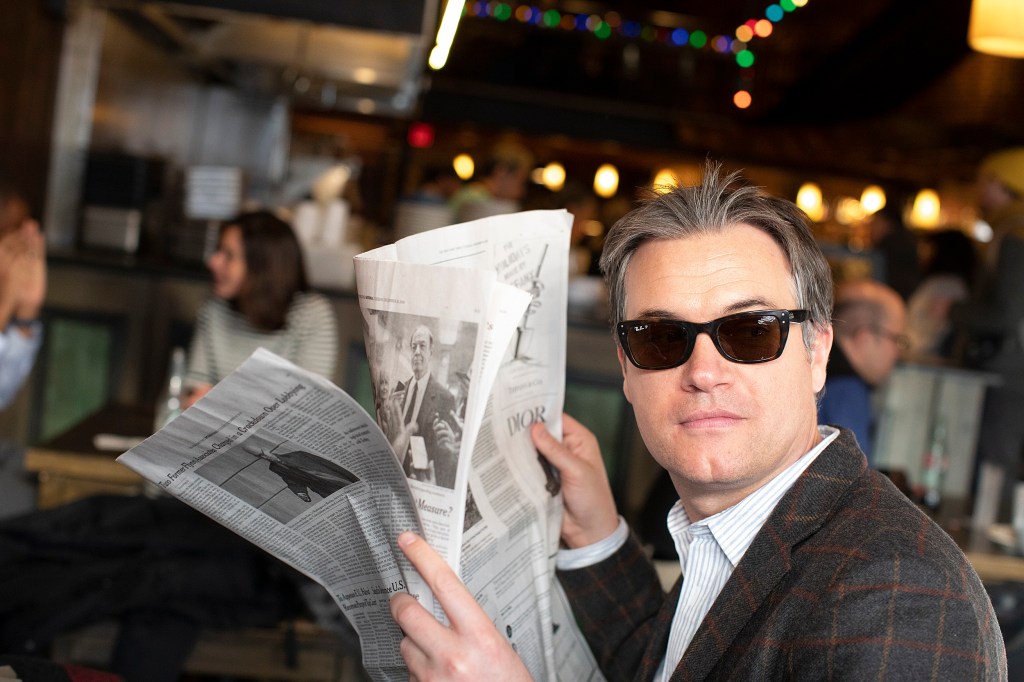
-
Final arguments in admissions suit
Harvard defended its admissions policies in U.S. District Court in Boston in a final hearing as part of a lawsuit that could change the landscape for higher education.
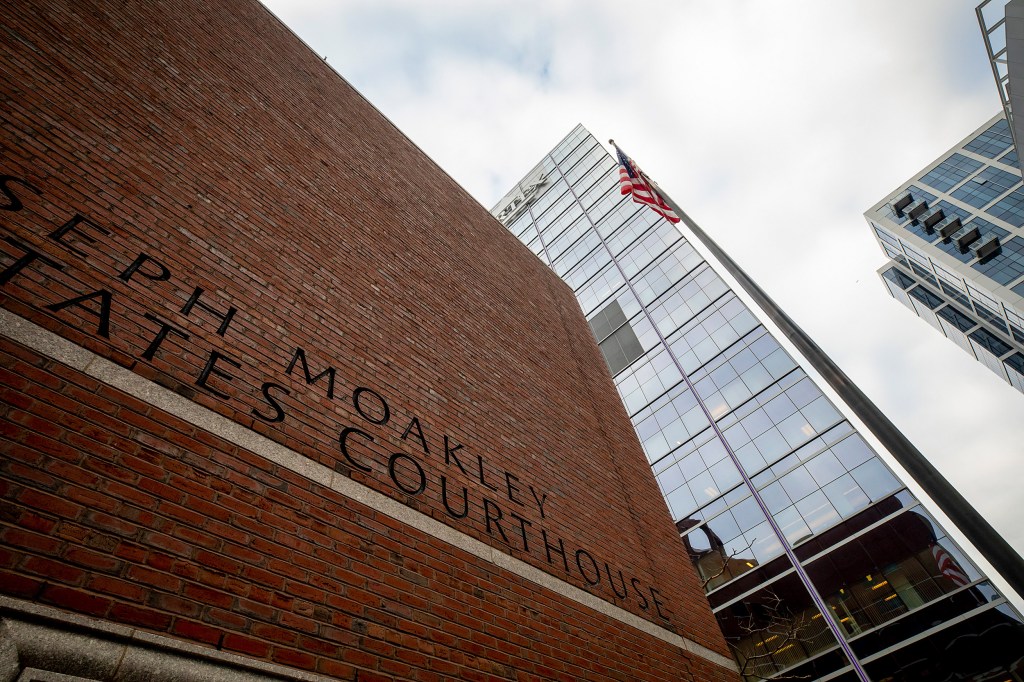
-
The endless struggle over racism
Pervasive racism and hate requires a response that addresses it at various levels, from politics to public safety to schools, experts at a Harvard Chan School forum said.
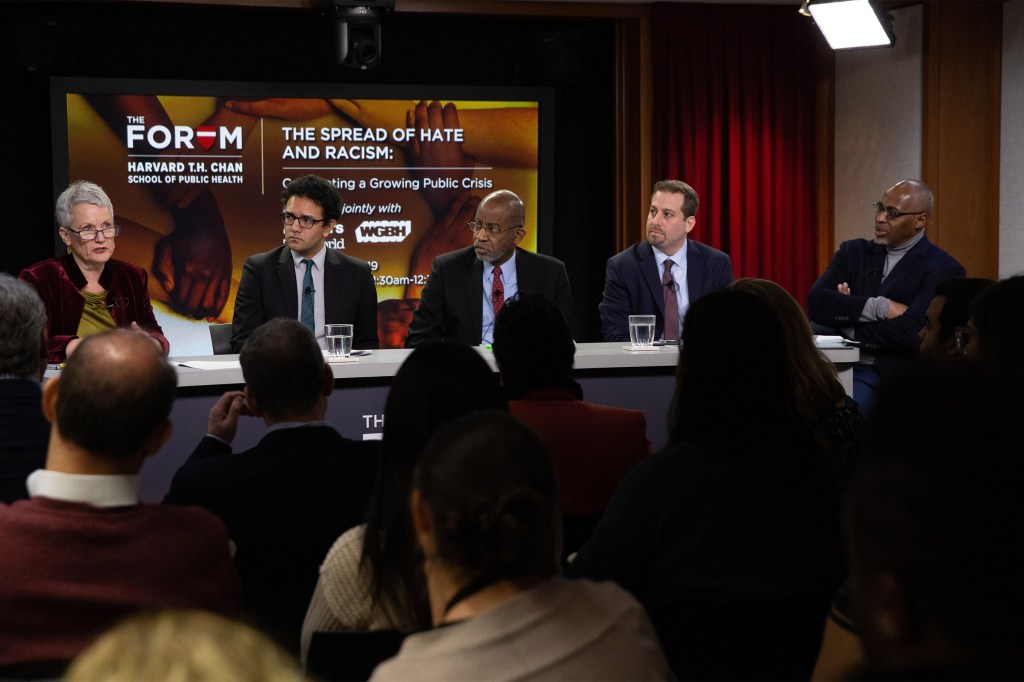
-
A spirited defense of NATO as bulwark
As NATO approaches its 70th anniversary, a new report from Harvard Kennedy School affiliates says the stalwart military alliance is in “crisis,” facing challenges from outside and within like never before.
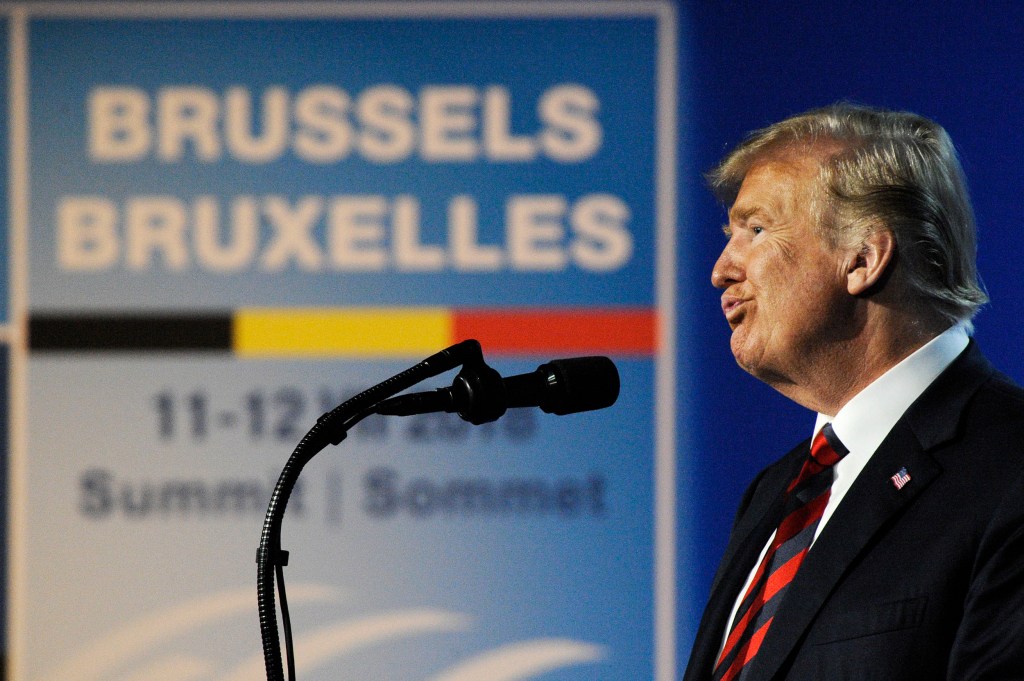
-
Understanding Venezuela’s collapse
Harvard Kennedy’s School’s Ricardo Hausmann, director of the Center for International Development and professor of the practice of economic development, discusses deteriorating conditions in Venezuela.

-
The push for campus election clout
The Institute of Politics’ National Campaign for Political and Civic Engagement weekend-long conference drew approximately 125 students and school administrators, who shared notes on campus voting initiatives in the 2018 elections and brainstormed how to expand on them in 2020.
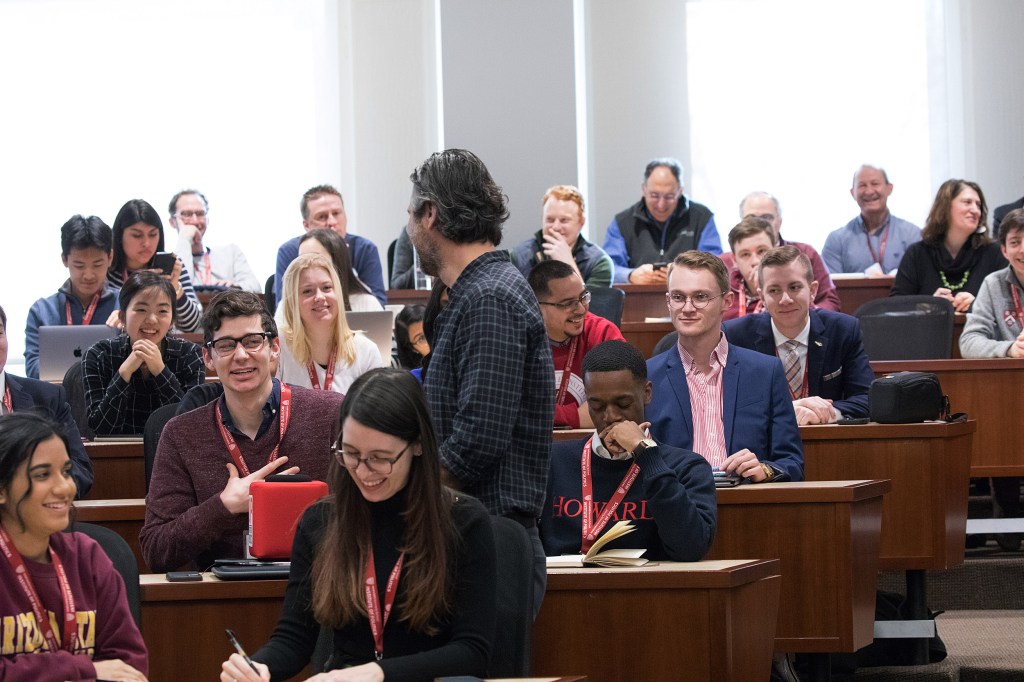
-
A ‘Prisoner’ story
Washington Post reporter Jason Rezaian, a 2017 Harvard Nieman Fellow, and his Iranian wife, journalist Yeganeh Rezaian, a fall 2016 Shorenstein Fellow, talk about their experiences as prisoners of Iran’s Revolutionary Guard.
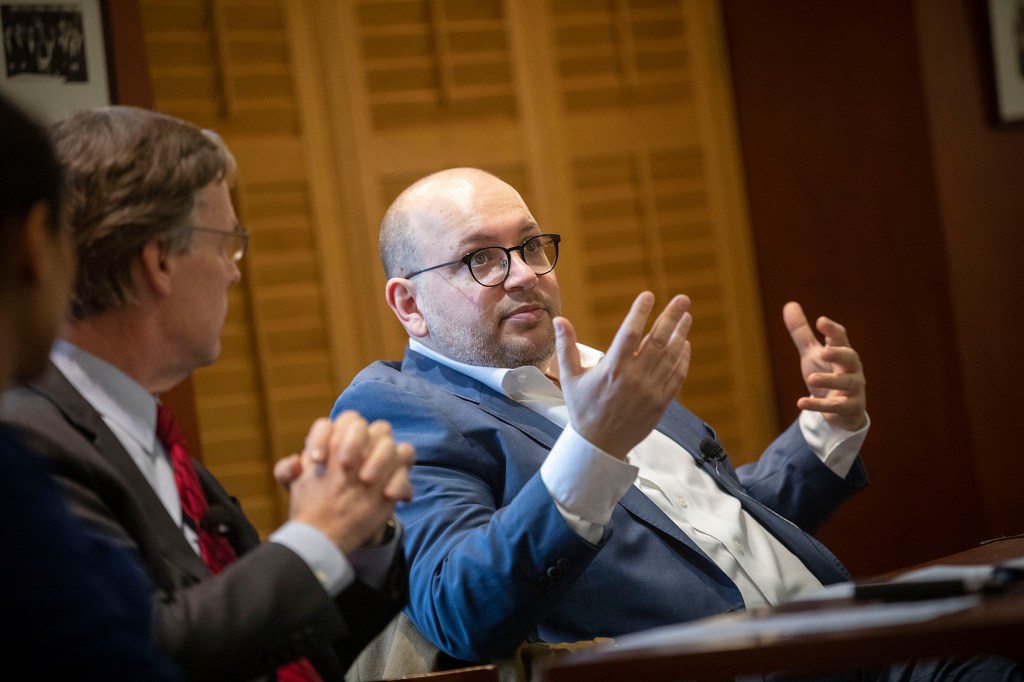
-
President Bacow defends higher ed
Giving a talk at the American Enterprise Institute in D.C., Harvard President Larry Bacow reaffirmed his support for colleges and universities and his belief that they can help change the world, despite fears Americans are increasingly questioning the value of a college degree.
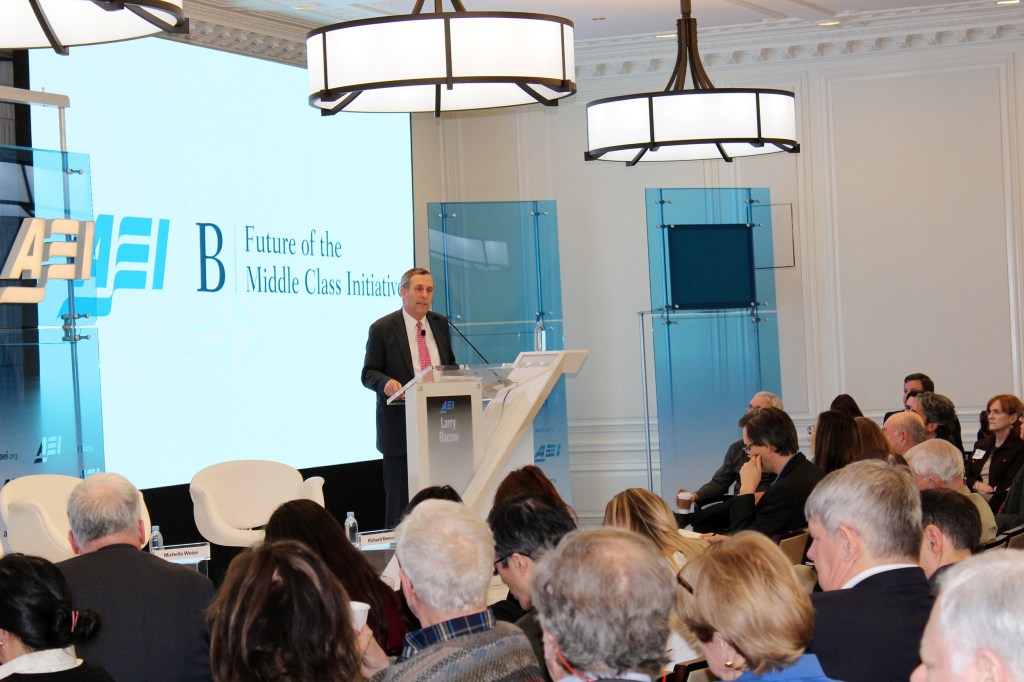
-
New center takes Harvard into rural schools
With the launch of a new national initiative and a network of district partners, the Center for Education Policy Research at Harvard University will partner with rural schools to move the needle on absenteeism and college readiness and enrollment.
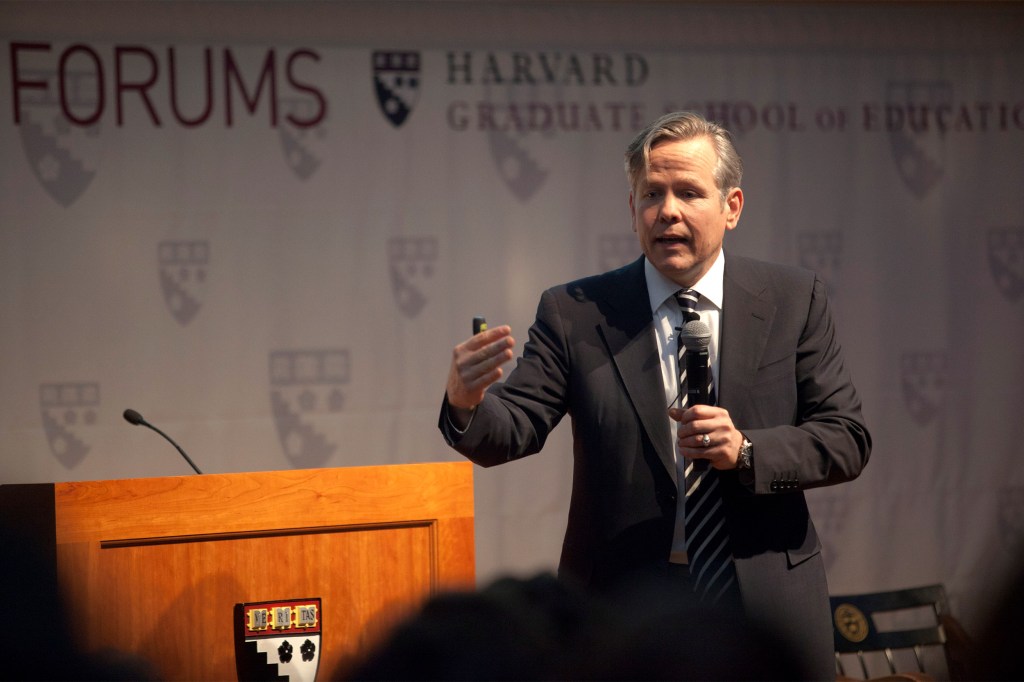
-
Nonviolent resistance proves potent weapon
Harvard Professor Erica Chenoweth discovers nonviolent civil resistance is far more successful in effecting change than violent campaigns.

-
A response to proposed Title IX changes
With input from Harvard and other educational institutions, the Association of Independent Colleges and Universities in Massachusetts submitted written comments this week to the U.S. Department of Education, responding to its proposed changes to Title IX.
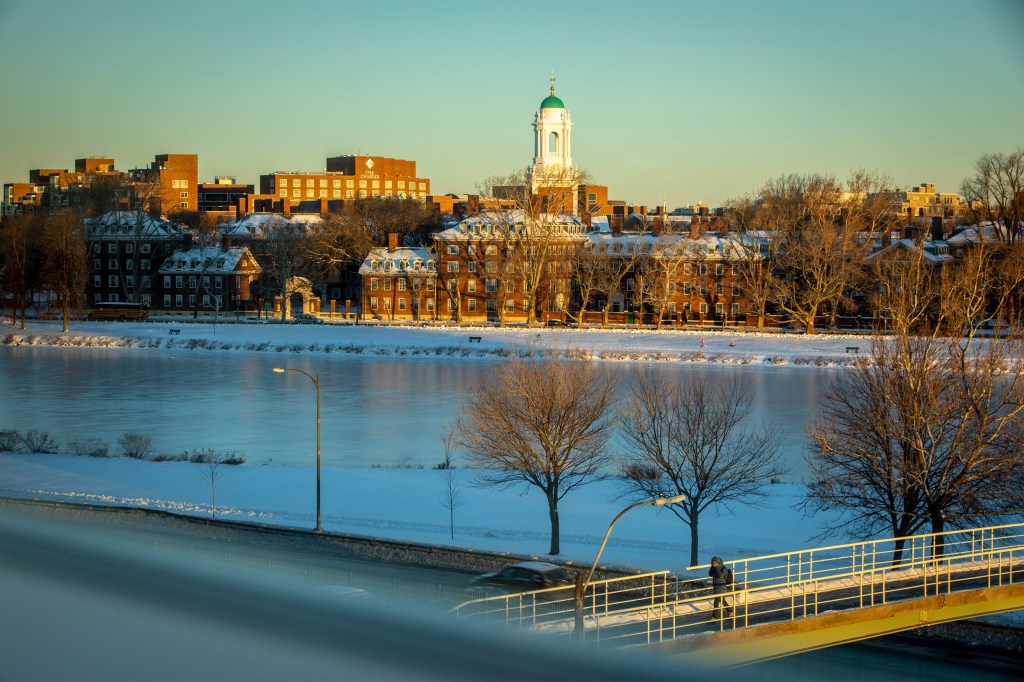
-
An inside look at the powerful, porous NFL
As Super Bowl LIII approaches, political reporter Mark Leibovich, now a national correspondent for The New York Times magazine and author of the 2013 best-seller “This Town,” discusses the intersection of politics and the National Football League.

-
A new look at the father of modern political thought
A conference at the Edmond J. Safra Center will examine the life and works of the late Harvard Professor John Rawls, whom many consider the father of modern political philosophy.
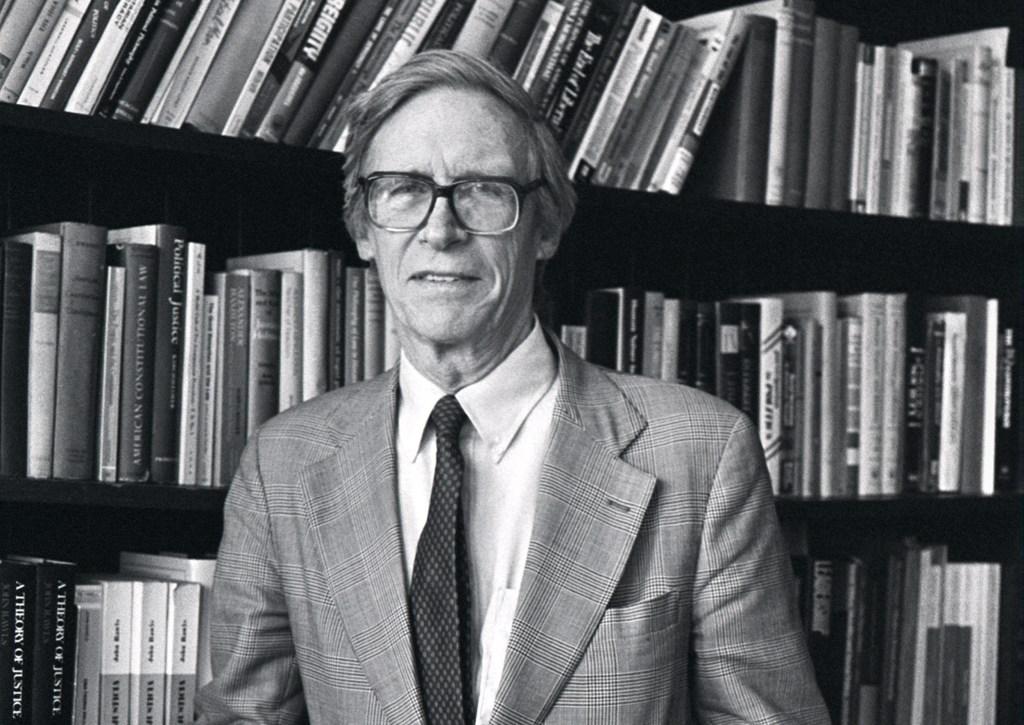
-
Whither that wall
Weeks into a federal government shutdown over the president’s request for money to build a border wall to keep out migrants coming from Central America and Mexico, Harvard analysts discuss the practical, legal, and historical implications of Donald Trump’s possible move to declare a national emergency to bypass congressional opposition.

-
Slavery alongside Christianity
A student-mounted exhibition probes the ties and tensions between slavery and Christianity during centuries of American bondage.
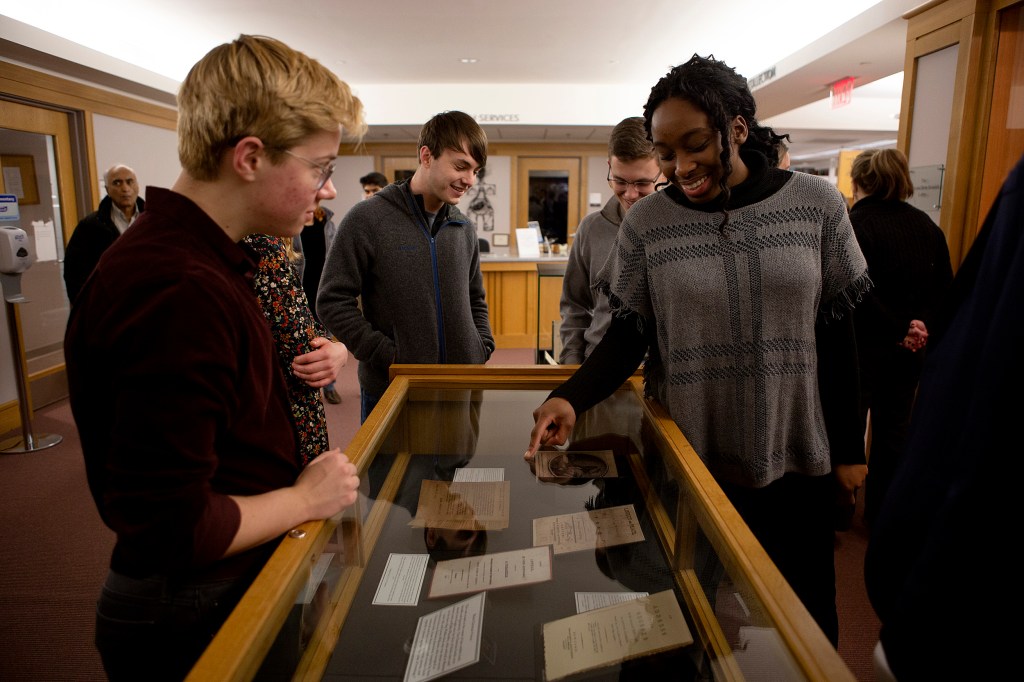
-
Paving the way for self-driving cars
Two efforts at Harvard are helping state and city officials in Boston and around the nation frame their early policy thinking around autonomous vehicles.
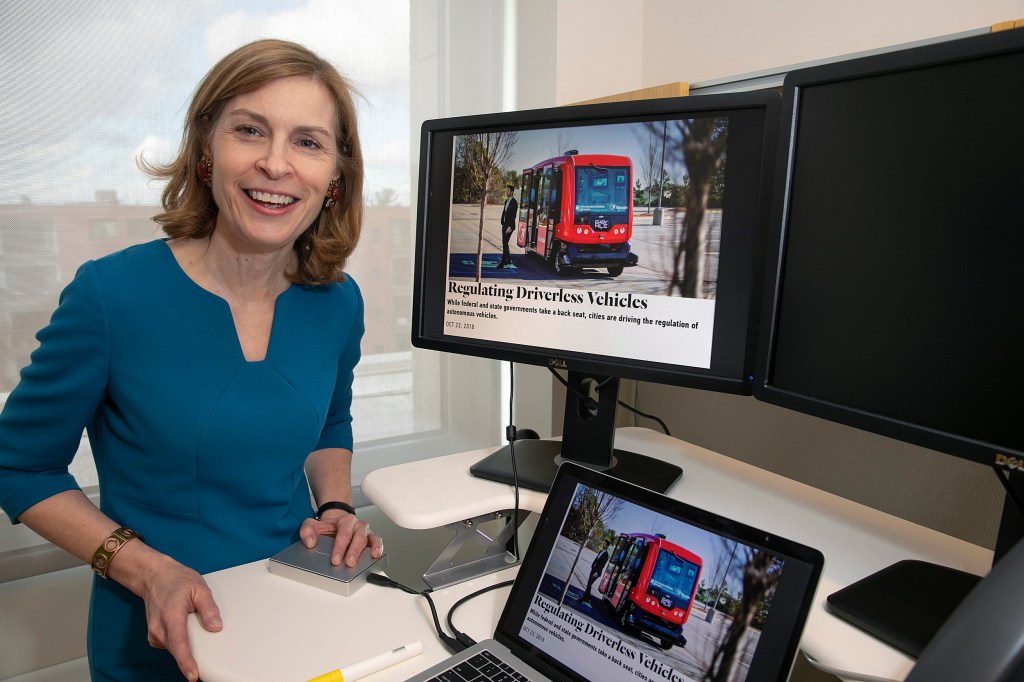
-
A trip to self-discovery in South’s troubled past
On a spring break trip sponsored by the Harvard Alumni Association, two College students learn a lesson in common humanity.
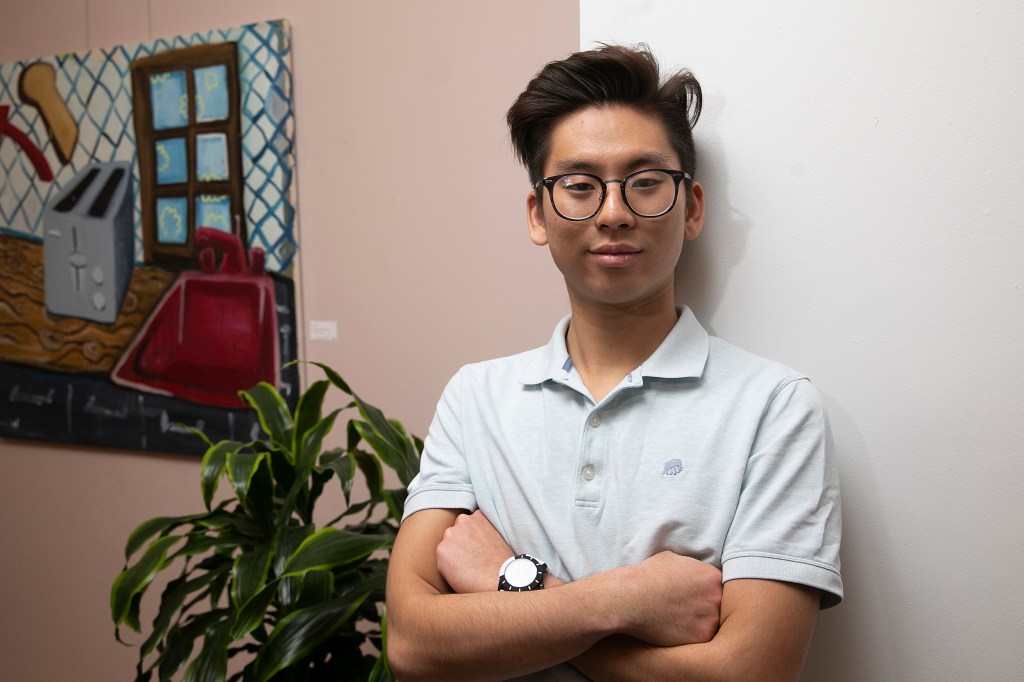
-
Where the present meets the past
During Israel visit, Harvard Divinity School students tracked movements of the historical Jesus.

-
Puerto Rico benefits from Harvard’s living lab
The community group Unidos por Utuado has won $100,000 in seed funding from the Puerto Rico Big Ideas Challenge to implement a plan — designed by Harvard students — for renewable and affordable electricity.

-
A new chief at Center for Public Leadership
Former Ambassador Wendy R. Sherman, who has held numerous top posts in the State Department and on Capitol Hill and led the U.S. negotiations with Iran over nuclear weapons that resulted in a historic 2015 accord, is set to helm the Center for Public Leadership at Harvard Kennedy School in January. She talks to the Gazette about her plans and her view of U.S. foreign policy today.
